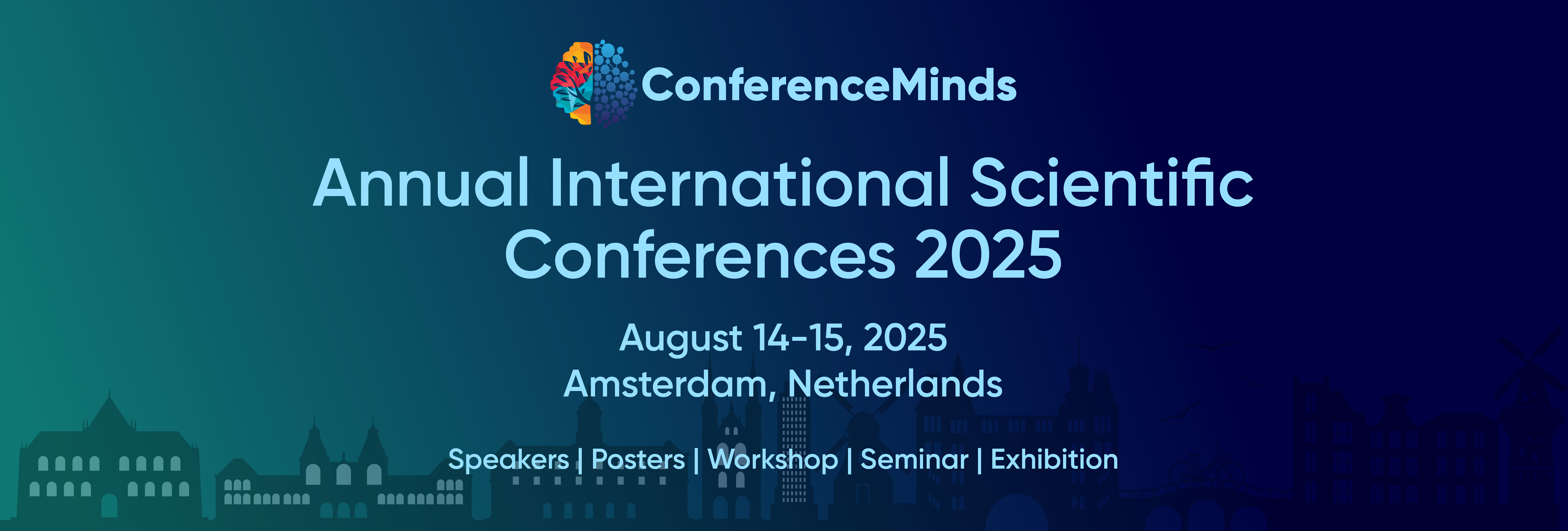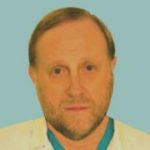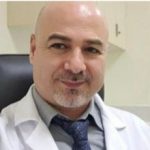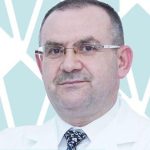Event Date
August 14-15, 2025
Venue
Amsterdam, Netherlands
– Previous Conference Performers / Professionals From Around The Globe –
Media Partners/Collaborator
A huge thanks to all our amazing partners. We couldn’t have a conference without you!



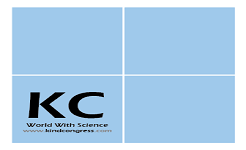



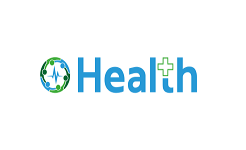


Sponsors/Exhibitors
A huge thanks to all our amazing partners. We couldn’t have a conference without you!


About Conference
The 3rd World Heart Congress will take place on August 14-15, 2025, in Amsterdam, Netherlands. This globally recognized event will bring together heart specialists, cardiologists, surgeons, researchers, and healthcare professionals from around the world to discuss the latest breakthroughs in heart health, cardiovascular diseases, and treatments. The conference will feature a diverse array of topics, from preventative cardiology to the latest advancements in heart surgery and medical devices.
Key themes for the congress will include:
- Cardiovascular Diseases (CVDs): New strategies in the prevention, diagnosis, and management of heart diseases such as coronary artery disease, heart failure, and arrhythmias.
- Heart Surgery Innovations: Latest developments in minimally invasive cardiac surgeries, robotic-assisted heart surgery, and valve replacement technologies.
- Cardiac Regenerative Medicine: The potential of stem cells, gene therapy, and tissue engineering in heart repair and regeneration.
- Heart Disease in Special Populations: Cardiovascular health in children, elderly populations, and those with comorbidities.
- Lifestyle and Heart Health: Examining the impact of diet, exercise, and mental health on heart disease prevention and recovery.
- Emerging Heart Health Technologies: The role of AI, machine learning, and wearable health devices in improving cardiac care and patient outcomes.
Why Attend?
Attendees can expect to engage with a diverse global community focused on exploring recent developments and solutions in cardiology and healthcare. Renowned keynote and plenary speakers, alongside the latest advancements in the field, signify the significance of this conference. Participation in this event fosters networking opportunities, collaboration, and knowledge-sharing among experts, researchers, and academicians.
Conference Opportunities:
- For Researchers and Faculty Members:
- Speaker Presentations
- Poster Displays
- Symposium Hosting (Team of 4-5 members)
- Workshop Organization
- For Universities, Associations & Societies:
- Book Launch Events
- Networking Opportunities
- Audience Participation
- For Product Manufacturers:
- Exhibitr and Vendor Booths
- Sponsorship Opportunities
- Product Launches
- Workshop Organization
- Scientific Partnering
- Marketing and Networking with Clients
Session and Tracks
Track 1: Heart Disease & Failure
Heart disease encompasses disorders affecting the heart, including blood vessel diseases like coronary artery disease, heart rhythm problems (arrhythmias), and congenital heart defects. Heart failure occurs when the heart can’t pump enough blood to meet the body’s needs, but it doesn’t mean the heart has stopped working. Conditions include coronary artery disease, congenital heart defects, and cardiomyopathy.
- Angiology
- Atrial Fibrillation
- Atrial Myxoma
- Unstable Angina
- Rehabilitation
- Transient Ischemic Attack
- Atherosclerosis
- Cardiomyopathy
- Cardiac Stroke
Track 2: Cardiac and Cardiovascular Research
This track focuses on raising awareness about heart disease risk factors and providing comprehensive cardiovascular services. It emphasizes prevention, detection, management, and treatment of cardiovascular diseases through postgraduate education and scientific work.
- Cardiac Electrophysiology
- Peripheral Arterial Disease
- 3D Cardiac Cell Modeling
- Genetic Basis for Inherited Cardiovascular Disease
Track 3: Diabetes, Obesity & Stroke
Obesity increases the risk of heart disease and stroke, often due to lifestyle choices like lack of exercise and poor diet. Diabetes and pre-diabetes also elevate cardiovascular risk. This track emphasizes managing blood glucose, hypertension, and blood cholesterol to lower the risk of heart disease and stroke.
- Diabetes Mellitus and Stroke
- Abdominal Obesity
- Vascular Dementia
- Abnormal Cholesterol and High Triglycerides
- Hemorrhagic Strokes (Bleeds)
Track 4: Pediatric Cardiology
This track deals with diagnosing and managing congenital heart defects and other cardiac conditions in infants, children, and adolescents. It addresses inflammatory heart diseases, such as myocarditis, and conditions like Kawasaki disease.
- Cardiac Malformation
- Congenital Abnormalities
- Hypplastic Left Heart Syndromes
- Auditory Stimulation Therapy
- Myocarditis
Track 5: Cardiovascular Disease
Covering a range of heart and blood vessel disorders, including coronary artery diseases, stroke, heart failure, and congenital heart defects. It highlights the importance of managing risk factors like hypertension and obesity.
- Pericarditis
- Valvular Heart Diseases
- Coronary Artery Diseases
- Rheumatic Heart Diseases
- Congenital Heart Defect
- Venous Thrombosis
Track 6: Women’s Cardiology
Focuses on cardiovascular health in women, addressing specific issues like pregnancy-related disorders and the persistence of weight gain after pregnancy. It aims to bridge the gap in sex-specific data collection and its translation into clinical practice.
- Pregnancy-related disorders and CVD risk association
- Persistence of weight gain after pregnancy
- Radiation and chemotherapy for breast cancer
- ASA in women with diabetes mellitus
- Ischemic heart disease in women
- Acute coronary syndromes in women
Track 7: Nuclear Cardiology
Utilizes nuclear imaging techniques for non-invasive cardiovascular disease evaluation. It involves injecting radiotracers into the bloodstream to create images of the heart, aiding in diagnosis and treatment planning.
- Modern practices in cardiovascular therapy
- Vasodilators
- Percutaneous Coronary Intervention (PCI)
- Heart Transplant
- Application of cardiac progenitor cells
Track 8: Angiography & Intervention
Focuses on visualizing blood vessels through angiography and catheter-based treatments for structural heart diseases. It emphasizes minimally invasive approaches to avoid scarring and long recovery periods.
Track 9: Molecular Cardiology
Studies genetic heart disorders and aims to reduce human disease through integrating basic science research and clinical cardiology. It explores the link between genetics, environmental factors, and cardiovascular diseases.
- Gene Analysis in the Diseased Heart
- Investigate the stem cell niche in tissue regeneration.
- Medical genetics
- Integrins and chemokine receptors in heart physiology & cardiovascular disease
Track 10: Cardio-Oncology
Addresses heart conditions in cancer patients, focusing on potential risks associated with cancer treatment. It involves close monitoring of heart health during treatment and the management of chemotherapy-related cardiac dysfunctions.
- Chemotherapy-related cardiac dysfunctions
- Platinum-based chemotherapy agents
- Cardio-oncology programs
- Novel targeted therapies
- Radiation-Induced Heart Disease
Track 11: Cardiologists
Specializes in heart and blood vessel disorders, providing diagnosis, treatment, and prevention services. It encompasses various specialties like general clinical cardiology, pediatric cardiology, and preventive cardiology.
- General clinical cardiologists
- Pediatric cardiologists
- Cardiovascular Anesthesiology
- Cardiovascular Pathology Research
- Preventive cardiologists
Track 12: Vascular Biology
Studies vascular function, structure, growth, and development to improve blood flow and organ perfusion. It focuses on identifying new therapeutic targets and developing novel treatment approaches.
- Angiogenic gene therapy
- Oxidative stress and vascular biology
- Vascular Surgery
- Vascular medicine
- Vascular Imaging and Diagnostic Testing
- Molecular Biophysics and Structural Biology
- Stem Cell Biology
Track 13: Hypertension
Addresses persistently elevated blood pressure and its implications, including risks of heart attack, stroke, and other complications. It emphasizes screening, management, and treatment of hypertension.
- Pulmonary hypertension
- Perioperative management in hypertension
- Erectile dysfunction
- Systolic/Diastolic malfunction
- Indications and contraindications for antihypertensive drugs
- Hypertension in acute stroke
Track 14: Cardiac Nursing
Specializes in caring for patients with cardiovascular diseases, providing postoperative care, stress test evaluations, and cardiac monitoring. It encompasses various environments like coronary care units, intensive care units, and cardiac rehabilitation centers.
- Stress test evaluations
- Hemodynamic Monitoring
- Monitoring cardiac and vascular readings
- Intensive hemodialysis
- Carig for Heart Transplant Patients
Track 15: Heart Regeneration
Focuses on repairing or replacing damaged heart tissue using techniques like stem cell therapy and tissue engineering. It aims to restore heart function by harnessing the body’s natural regenerative capacity.
- Transdifferentiation During Heart Regeneration
- Cardiac Remodeling
- Cardiac-Derived Stem Cells
- Tissue Engineering-Concepts for Generation of Cardiac Tissue
- Biomimetic Heart Valve Replacement
Track 16: Cardiac Pharmacology
Deals with medication for cardiac diseases, including categories like cardiac glycosides, anti-coagulants, and anti-hypertensive agents. It emphasizes the development of new drugs and managing drug-induced cardiac toxicity.
- Drug-Induced Cardiac Toxicity
- Novel Anti-Inflammatory Therapies for Atherosclerosis
- Development of Novel Anti-Ischemic Agents
- Beta Blockers Blocking
- Cardiac Glycoside
Track 17: Cardiology – Future Medicine
Explores advancements and innovations in cardiology, including personalized medicine, novel treatment approaches, and the role of technology. It aims to improve clinical practice and patient outcomes.
- Development of pacemaking and Cardiac Conduction System Lineages
- Rol of platelets and antiplatelet therapy in cardiovascular disease
- Molecular Targets of Antihypertensive Drug Therapy
- Real-world Evidence and Outcomes Research
- ‘Personalized Medicine’ In Cardiology
Track 18: Case Reports on Cardiology
Highlights case studies to advance treatment strategies and improve understanding of cardiac disorders. It emphasizes networking and knowledge sharing among professionals and academicians.
- Aortic Diseases
- Infective Endocarditis
- Disorders due to Coronary Circulation
- Myocardium and Pericardium
- How to Counter Coronary Artery Disease
Track 19: Heart Diagnosis
Focuses on various diagnostic methods for heart diseases, including imaging techniques and cardiac surgeries. It emphasizes the importance of early detection and medical care for managing heart conditions.
- Electrocardiogram & Echocardiography
- Holter Monitoring
- Cardiac Computerized Tomography (CT) scan
- Cardiac Magnetic Resonance Imaging (MRI)
- Chest X-ray
Track 20: Heart Devices
Involves electronic devices for assisting cardiac circulation, such as pacemakers, defibrillators, and biosensors. It explores advancements in wireless cardiac monitoring and individualized medicine.
- Implantable Cardioverter-Defibrillator (ICD)
- Cardiac Resynchronization Therapy (CRT)
- Left Ventricular Assist Device (LVAD)
- The Heart Ware’s Ventricular Assist System
- The Levacor Heart Pump
Track 21: Cardiac Surgery
Addresses surgical interventions for heart and blood vessel disorders, including coronary artery bypass grafting and valve replacement. It emphasizes minimally invasive approaches and heart transplantation.
- Minimally Invasive Coronary Artery Bypass Surgery
- Valve-Sparing Aortic Root Replacement
- Open-heart surgery
- Transmyocardial Laser Revascularization
- Off-Pump Heart Surgery
Market Analysis
The cardiology and heart healthcare sector is one of the most rapidly advancing areas of medicine, with new technologies, treatments, and research continuously emerging to address the rising global burden of cardiovascular diseases (CVDs). Below is a comprehensive market analysis of the cardiology and heart healthcare sector.
1. Industry Overview
- Global Cardiovascular Market: Cardiovascular diseases are the leading cause of death worldwide, driving significant demand for research, medical interventions, and healthcare services. The global cardiology market includes diagnostic tools, pharmaceuticals, surgical treatments, and health management services focused on heart health.
- Rising Prevalence of Heart Diseases: With lifestyle changes, aging populations, and increased prevalence of risk factors such as hypertension, diabetes, and obesity, the need for heart-related care is growing globally.
2. Target Audience
- Cardiologists and Heart Surgeons: Healthcare professionals specializing in the diagnosis, treatment, and surgical intervention of heart diseases.
- Researchers and Academics: Individuals and institutions focusing on advancing heart disease knowledge, from basic science to clinical applications.
- Medical Device Manufacturers: Companies producing diagnostic tools (e.g., ECG machines, imaging equipment), surgical instruments, and implantable devices (e.g., stents, pacemakers, artificial valves).
- Pharmaceutical Companies: Firms developing cardiovascular drugs, including statins, antihypertensives, blood thinners, and newer biologic treatments.
- Healthcare Providers: Hospitals, clinics, and health organizations focusing on cardiac care, from prevention to rehabilitation.
3. Current Trends
- Minimally Invasive Heart Surgery: Increasing use of minimally invasive techniques, such as robotic surgery and catheter-based procedures, for treating heart conditions, offering quicker recovery times and reduced patient risk.
- Artificial Intelligence (AI) and Cardiology: AI is being increasingly integrated into diagnostic tools, such as ECG analysis, imaging systems, and predictive modeling, to help cardiologists detect heart conditions earlier and improve patient outcomes.
- Cardiac Regenerative Medicine: Breakthroughs in regenerative therapies, including stem cells, gene therapies, and tissue engineering, offer hope for repairing damaged heart tissue and reversing certain heart conditions.
- Wearable Technology: The growth of wearable devices such as heart monitors, fitness trackers, and ECG patches that provide real-time heart health data for both patients and healthcare providers.
- Telemedicine in Cardiology: With the rise of telehealth, patients are increasingly receiving remote care, consultations, and monitoring, which is especially useful for individuals with chronic heart conditions.
4. Market Growth Drivers
- Aging Population: As people live longer, the prevalence of cardiovascular diseases increases, driving demand for diagnostic services, treatments, and long-term care.
- Increase in Lifestyle-related Diseases: Rising rates of obesity, diabetes, and hypertension are contributing to higher rates of heart disease, leading to increased demand for prevention programs and treatment options.
- Technological Advancements: The continuous innovation in heart disease treatments, including AI, robotic surgery, and personalized medicine, is fueling market growth and offering new opportunities for healthcare professionals and companies.
- Improved Access to Healthcare: As healthcare access improves in emerging markets, there is greater demand for cardiovascular care and treatment options.
5. Challenges
- High Costs: The cost of heart treatments, especially innovative therapies and surgeries, can be prohibitive for many patients, particularly in low-income regions.
- Healthcare Inequality: Disparities in access to cardiovascular care, especially in rural or developing areas, can limit the effectiveness of heart health initiatives globally.
- Regulatory Hurdles: Cardiovascular drugs and medical devices are subject to stringent regulatory processes, which can delay the approval and distribution of new treatments.
- Lifestyle Factors: Despite awareness campaigns, lifestyle factors such as smoking, poor diet, and lack of physical activity remain significant contributors to the global heart disease burden.
6. Opportunities
- Global Expansion of Cardiovascular Care: The growing healthcare infrastructure in emerging markets offers substantial opportunities for cardiology professionals, device manufacturers, and pharmaceutical companies to expand their reach.
- AI and Big Data in Heart Disease Management: The use of AI, big data analytics, and machine learning in early heart disease detection, monitoring, and predictive analysis represents a major opportunity for innovation in cardiovascular care.
- Cardiac Rehabilitation: As the focus shifts toward preventive and long-term care, cardiac rehabilitation programs are becoming increasingly important, offering a growing market for services and products that support recovery post-heart attack or surgery.
- Genomic Medicine in Cardiology: Advances in genomics and personalized medicine are allowing for tailored heart disease treatments, offering new ways to treat conditions based on an individual’s genetic makeup.
7. Competitive Landscape
- Key Players: Leading companies in the cardiovascular market include medical device manufacturers (e.g., stents, pacemakers, defibrillators), pharmaceutical companies (e.g., statins, blood pressure medications), and healthcare providers specializing in cardiology.
- Collaborations and Partnerships: Collaborations between research institutions, technology companies, and healthcare providers are driving the development of next-generation heart disease treatments, diagnostic tools, and patient care solutions.
– Tracks & Key Topics –
- Anaesthesia and Cardiac Image
- Atrial Fibrillation
- Angiography & Electrocardiography
- Cardiovascular Disease
- Cardiovascular Research
- Cardiac Nursing
- Cardio-Oncology
- Cardiac diagnostics
- Clinical Cardiology case report
- Cardiac Emergencies
- Cardiac Pharmacology
- Current Research in Cardiology
- Cardiovascular Toxicology
- Diabetes, Obesity
- Factors Affecting Heart
- Heart Regeneration
- Hypertension
- Heart surgery
- Heart Failure
- Hypertrophic Cardiomyopathy
- Invasive cardiology
- Molecular Cardiology
- Nuclear Cardiology
- Pediatric Cardiology
- Public Health and Epidemiology
- Preventive cardiology
- Percutaneous Cardiovascular Interventions
- Stroke
- Vascular Biology
- Women’s Cardiology
- Heart-lung Interactions
- Hypertension
- Hypertrophic Cardiomyopathy
- Interventional Cardiology
- Interventional Cardiology
- Lipid Disorders
- Myocardial Infarction
- Obesity & Stroke
- Pacemaker Therapy
- Peripheral Artery Disease
- Risk Stratification
- Sports Cardiology
- Stroke Prevention
- Structural Heart Disease
- Telecardiology
- Thrombosis
- Transplantation: Heart And Lungs
- Valvular Heart Disease
- Advances In Cardiology
- Arrhythmias
- Atherosclerosis
- Cardiac And Cardiovascular Research
- Cardiac Arrhythmias
- Cardiac Biomarkers
- Cardiac Catheterization
- Cardiac Electrophysiology
- Cardiac Imaging
- Cardiac Nursing Care
- Cardiac Pharmacology
- Cardiac Pharmacology
- Cardiac Rehabilitation
- Cardiac Risk Factors
- Cardiac Surgery
- Cardiac Surgery
- Cardio-Oncology
- Cardiology – Future Medicine
- Cardiometabolic Diseases
- Cardiomyopathies
- Cardiomyopathy
- Cardiothoracic Surgery
- Cardiovascular Diabetology
- Cardiovascular Genetics
- Cardiovascular Impact Of COVID-19
- Case Reports On Cardiology
- Congenital Heart Defects
- Coronary Artery Disease
- Current Research
- Dyslipidemia And Risk Factors
- Echocardiography
- Electrophysiology
- Fetal Cardiology
- Genetic Heart Diseases
- Heart Devices
- Heart Diagnosis
- Heart Disease Prevention
- Heart Failure
- Heart Failure Management
- Heart Health Promotion
- Heart Rate Variability
- Heart Regeneration
- Heart Rhythm Disorders
- Heart Transplantation
- Heart Valve Repair/replacement
- Heart-lung Interactions
- Hypertension
- Hypertrophic Cardiomyopathy
- Interventional Cardiology
- Interventional Cardiology
- Lipid Disorders
- Myocardial Infarction

